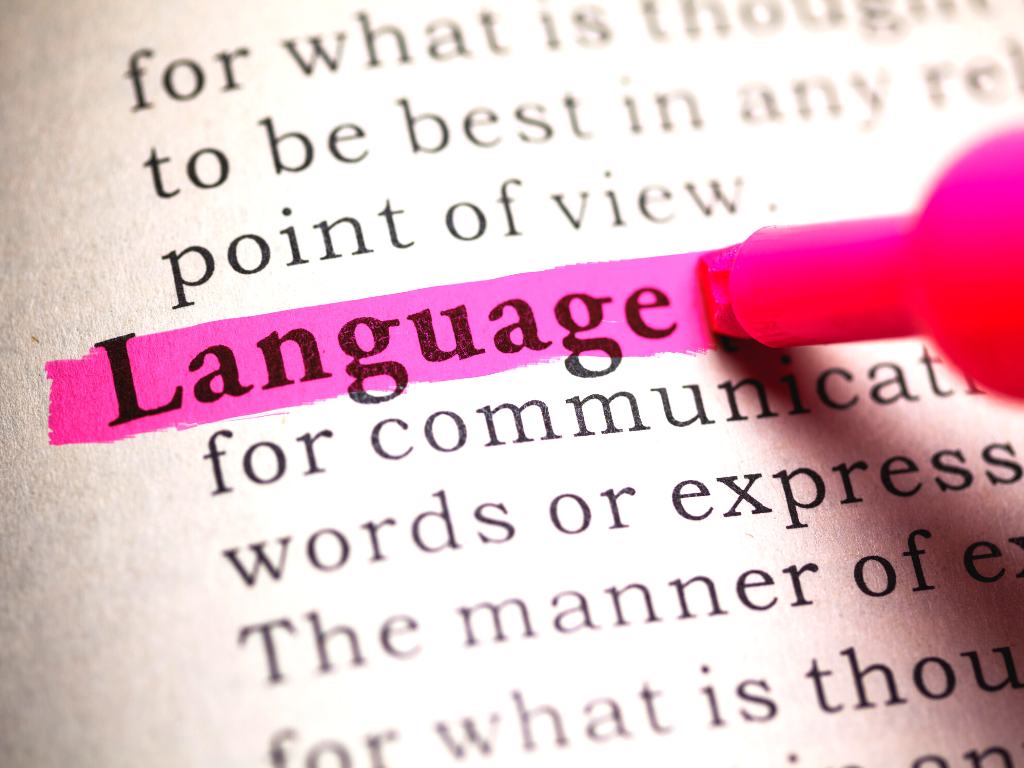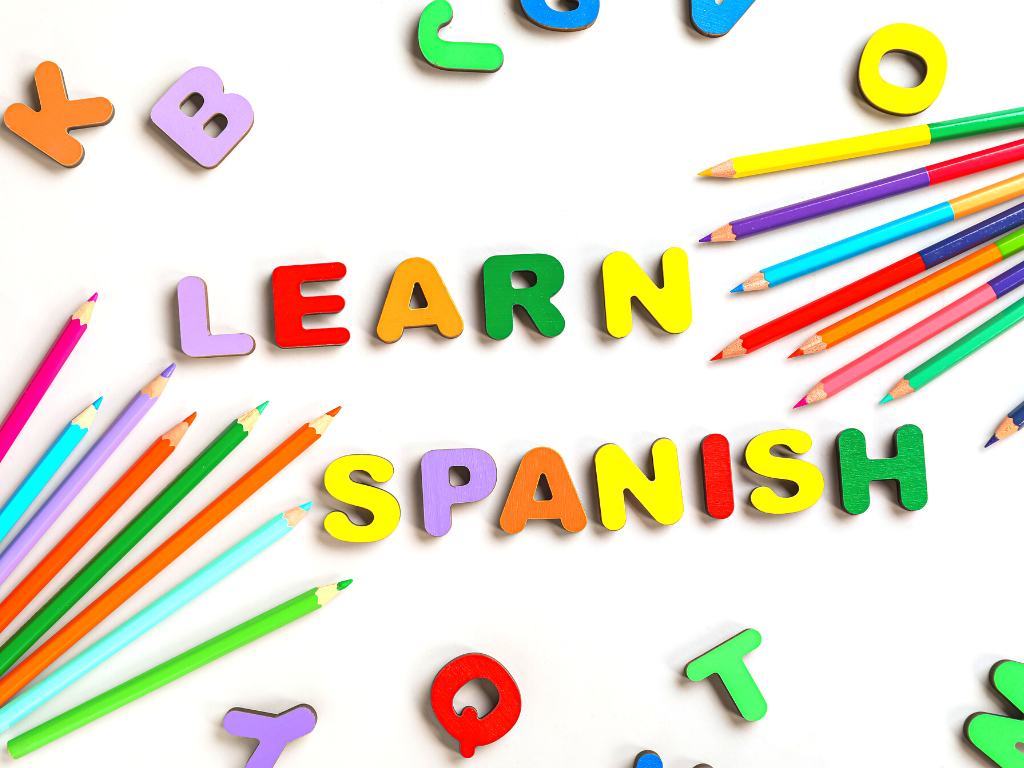Intercambio in Spain: English/Spanish Language Exchange
Disclaimer: Links on this page may be affiliate links. If you make a purchase after clicking a link, I may receive a small compensation to help power my site at no cost to you.
What is an Intercambio in Spain? What does Intercambio mean in English? Read to find out how to improve your language skills with an intercambio!
If you’ve been in Spain for a while, are planning an extended trip, or are curious about building your Spanish language skills, you may want to consider doing an intercambio.
If you have no idea what an intercambio is, don’t panic!
Being a former Spanish teacher who lived in Spain, I know the importance of practicing the language with anyone you can—friends, classmates, host family, waiters, shopkeepers, and even the postman!
Taking advantage of all of those opportunities along with an intercambio will help you to become fluent in Spanish (I know from experience!).
By the end of this blog post, you’ll understand the meaning of intercambio, why you should set one up, how to find intercambios in Spain, and how to get the most out of them—no matter where you are in your language learning journey.
What is an Intercambio in Spain?

An intercambio (also called a tándem) is a language learning exchange set up between two native speakers wherein each person is learning the other’s language.
During the intercambio, speakers of both languages (typically a native English speaker and a native Spanish speaker) come together to practice each other’s language, give language feedback, and share cultural insights.
Generally, meeting regularly with your intercambio is expected. Intercambios (language partners) often meet weekly for about an hour over coffee or a snack, but you can set a schedule that works for both of you.
The idea behind an intercambio in Spain (or elsewhere) is that it’s mutually beneficial to both parties. Thus, the first half of the session is spent in one language, and the second half in the other. In this manner, each person gets a chance to improve their foreign language speaking skills.
What Does Intercambio Mean in English?

If you look up the word intercambio in a Spanish-English dictionary, you’ll see that it literally means “to exchange” or “to swap.”
That’s the basic premise behind a Spanish-English intercambio—an equal exchange of ideas or information.
—¿A qué hora es nuestro intercambio?
—What time is our language exchange?
Note that while the verb intercambiar (to exchange, trade, or swap) exists, intercambio is used as a noun along with the verb hacer (to do, make). Thus, it’s common to hear “hacer un intercambio” or “hacer un intercambio de idiomas” (language exchange).
—¿Te interesa hacer un intercambio conmigo los martes?
—Are you interested in doing a language exchange with me on Tuesday?
The word “intercambio” also colloquially refers to the language exchange partner, as in the example below.
—Voy de camino a encontrarme con Alba, mi intercambio de idiomas.
—I’m on my way to meet Alba, my language exchange partner.
In some locations in Spain, the phrase “hacer tándem” is preferred. Tándem literally means “duo” or “team” and is a synonym for intercambio.
—¿Quieres hacer tándem conmigo?
—Do you want to do a language exchange with me?
Why Should You Do an Intercambio/Tándem?
There are a lot of benefits to participating in a foreign language exchange (sometimes called a language tandem) if you’re willing to put in the time and effort required.

Here are some of the major pros to tándems:
Practice Makes Perfect
While there are language learning tools, language exchange apps, textbooks, and classes, the best way to improve your speaking skills is to practice talking in Spanish!
Sitting face-to-face with a native (or near-native) Spanish speaker is an excellent way to practice your skills and get immediate feedback. This targeted speaking practice will allow you to improve quickly, especially if done on a regular basis.
I always encouraged my world language students to practice at every opportunity, and I do the same whenever I visit Spain or a Spanish-speaking country.
Intercambios are Inexpensive
Besides helping you improve your Spanish, intercambios are a relatively cheap way to practice speaking your L2 with Spanish speakers.
Typically, you’ll only pay a few euros for a coffee or a snack when meeting at a cafe. You can even opt to go for a walk or meet at the library if you’re really on a tight budget.
Work on Certain Topics
Once you’ve gone beyond pleasantries, you typically get to choose the topic or language structures you’d like to work on during your half of the exchange.
In this regard, use the intercambio the complement what you’re learning in Spanish class or to help you navigate certain situations.
For example:
- Have a conversation about families to practice your family vocabulary in Spanish.
- Tell a story in the past tense to use preterit vs. imperfect. Ask your partner to correct you as you go.
- Ask for advice about how to talk to your landlord about replacing your broken outlet.
- Have a discussion about the benefits and disadvantages of remote work.

Learn About Spanish Culture from a Spaniard
An intercambio in Spain is your chance to ask unlimited questions to someone who’s equally passionate about language and culture.
Take advantage, and use this time to ask your burning questions about Spanish culture like, “What is desayuno?”
You’ll likely find that your partner has lots of questions about your culture too, such as, “Do Texans really ride horses?” (I can’t count how many times a Spaniard has asked me this!)
Speak Spanish in a Natural Setting
While taking a class or working 1:1 with a Spanish tutor is absolutely valuable, participating in a language exchange has its benefits.
There’s no replacement for having a natural one-on-one conversation with a native speaker. Doing it in a supportive environment where your language partner will help you navigate the nuances of the languages, even better!
Make Spanish Friends
While you won’t become best friends with all of your language partners, you may just hit it off with some of them. And as any expat will tell you, making friends abroad is essential.
I found that some of my Spanish intercambios only met with me for a few sessions, while others invited me out to meet their friends or family. In time, we dropped the formal sessions in exchange for hanging out, going to festivals together, texting, and following each other on social media.
While the initial goal of doing a tándem is to improve your language skills, the time you spend together can lead to meaningful friendships and create a sense of belonging in your adopted country.
How to Find an Intercambio in Spain
There are different types of intercambios in Spain, from meeting one-on-one in person to group language nights to online meetings.

Here’s how you can find the best intercambio for your needs:
Search Online
It seems like the answer to everything today is, “Look online.” But in the case of English-Spain intercambios, searching or joining groups online might just be your best bet.
To find in-person, group language exchanges, try looking on Meetup, Eventbrite, or Couchsurfing. There, you’ll likely find regular English-Spanish language exchange meetups at bars or restaurants in your area. You can also join local Facebook groups.
Larger cities like Madrid, Barcelona, Sevilla, and Málaga are all known to have vibrant language exchange groups.
Hit it off with someone at a language exchange event? Ask them if they’d like to meet one-on-one on a regular basis!
If you want to meet with someone online to improve your skills before you travel to Spain (or to better align with your schedule), conversation apps like Tandem, HelloTalk, Speaky, and Bilingua are a good place to find other passionate language learners.
Spanish Language School
If you’re learning Spanish at a language school, they will very likely know about intercambios and even encourage you to find one! (Even if you’re not attending classes, these are a good resource.)
Ask around, or look for flyers posted on community bulletin boards (This is how I found all of my intercambios—by posting my name and contact info). The schools may also have online message boards or student-only forums.
Universities may also have a world languages department where you can advertise or join a language exchange club.
Likewise, study abroad, exchange student, or Erasmus programs may organize intercambios or tell you where best to find one.
Ask Friends for a Referral
Don’t be afraid to ask friends, roommates, your host family, or acquaintances for referrals.
Chances are they may know of someone who is looking to improve their language skills or know what direction to point you in to find someone.
How To Get The Most Out of a Spanish Language Exchange

While intercambios can be fun, they are an investment. Here are a few ways to make the most of the time you spend with your language exchange partner:
1. Talk to lots of people
There’s no rule saying language learners can only have one language exchange partner. You can learn different things from different people. So, if you have the time, try meeting up with multiple people or forming a small group tándem language exchange.
You can also find group language nights full of Spanish speakers and English speakers. These are often hosted in public spaces where anyone can join. Each one is run differently, but you’re often placed into smaller groups where you can chat a bit before moving to another group.
Intercambio nights will give you a chance to talk to many different people, pushing you out of your comfort zone while getting tons of practice.
2. Find a Fair Balance Between Languages
Intercambios should be structured in a way that’s beneficial for both parties. Typically, this looks like half of the allotted time in Spanish, half in English. You could also alternate sessions, completing one full session in the English language and the next one in Spanish.
You should also both commit to speaking the same language—don’t talk in Spanish and have your intercambio answer in English if you really want to learn!
In my experience, this never works out quite perfectly.
One partner is often stronger than the other. When this happens, both people end up defaulting to the stronger person’s language. This could mean you’re not the right fit. Or, it could mean one person gets less practice but is still happy to meet since they are still learning and getting a chance to learn about your culture.
All in all, there are different ways of finding balance. Whatever you do, communicate with your intercambio. Make sure he or she is comfortable and getting a chance to practice his or her new language while learning from you.
3. Give it a Trial Run Before Committing to an Intercambio
Once you’ve found a few potential language partners, chat with them online, on the phone, or meet up for a coffee to see if you’re a good fit before committing to a weekly meetup.
Ideally, you will have some things in common and be at similar levels in your language-learning journey. However, neither of those things are 100% required.
Take some time to talk about your expectations for the meetings. For example, do you want your language partner to correct you? Or, do you want to decide upon topics before each meeting?
Once you find someone on the same page, arrange to meet for the first time.

4. Takes Notes
Although an intercambio is supposed to be a natural conversation, you’re both still learners!
Feel free to bring a notebook or take notes on your phone. You’re bound to learn lots of new vocabulary, cultural insights, and even places to go or things to see in the area. You can record voice memos for each other with pronunciation tips and tricks, too!
5. Be Straightword About Your Intentions When it Comes to Dating
One of the first pieces of advice I received after arriving in Spain was to only do intercambios with other women. Having lived in Spain several years, my new friend was quick to tell me that some Spanish guys/girls participate in intercambios solely to meet potential American girlfriends/boyfriends.
If you’re not interested in dating, be upfront. Find platonic friendships, or participate in group intercambios to avoid unwanted attention.
In no way should you feel pressured to go on a date with someone just because you’re trying to learn Spanish! Geez!
On the other hand, if you are looking for a romantic Spanish partner, perhaps an intercambio is the way to meet someone with similar interests!
6. Don’t Be Afraid to Find a New Language Partner
While most people who participate one-on-one intercambios are genuinely interested in learning the target language, sometimes things just don’t work out.
If for any reason you decide that your intercambio isn’t the best fit, don’t be afraid to say so. Whether that means stopping the meetings immediately or not continuing past your initial commitment (say you agreed to meet for a semester, for example), no one is saying you must continue meeting. This is especially true if you feel uncomfortable or unsafe.
Be clear with the other person, and discontinue your weekly meetings. Then, find someone else that better aligns with your language learning goals.
7. Take Language Level into Account
When finding an intercambio, you’ll want to find out what each other’s level of English and Spanish is. In my experience, doing an intercambio works best when you are both around the same level.
That being said, it’s perfectly fine to be on different levels.
What’s more important is that you’re both mindful that each other is still learning. Everyone makes mistakes, but a good language partner will be patient and help you to improve at your own pace.
You may also want to follow these tips if you’re working with a beginner:
- Slow down when speaking
- Enunciate
- Avoid idioms or colloquialisms
- Use proper grammar

8. Do an Activity Together
Sitting and meeting for a chat each week can get monotonous, even for avid linguaphiles! Fortunately, the activities you can do together are endless!
Don’t be afraid to ask to switch up your routine. This could include bringing a board game or cards to play, an article to read, data points to discuss, or using speaking prompts.
You can also go on excursions around town. Just walking around the city you’ll find lots of things to point out and talk about. If you both like photography, you can do a photo walk. Really, it’s almost like a private walking tour with a local in which you both benefit in a natural setting!
One of my favorite memories with my language partner was going to the grocery store. It gave us a chance to ask each other all sorts of cultural, vocabulary, and pronunciation questions. I highly recommend doing that after you’ve gotten to know each other better!
9. Prepare Ahead of Time
You might consider doing a little preparation ahead of time to get the most out of the meeting. (Just a little, there’s no exam involved!)
Preparation can mean a lot of things. For instance, bringing get-to-know-you questions to your first few meetings could be helpful. You could also bring a list of your latest vocabulary words from Spanish class to incorporate into the conversation. Or you could bring your textbook for help understanding or practicing a certain concept.
You also want to prepare to help your partner. Find out what they struggle with, research common English-learning pitfalls, or prepare some resources in case there is a lull in communication.
Chances are the better of a partner you are, your partner will reciprocate, making your intercambios even better.
10. Embrace Uncertainty & Discomfort
Chances are if you’re looking into an intercambio, you’re probably pretty outgoing and dedicated to learning the target language. Even so, it can be daunting putting yourself out there and potentially making embarrassing mistakes!
Whatever you do, remember that mistakes will help you grow. It’s better to get out there and work on your language than not to. If you don’t do it, the only person you’re hurting is yourself.
Intercambio Meaning: FAQs
Have lingering questions about the meaning, definition, or translation of intercambio? We’ve got you covered with these frequently asked questions:
How do you pronounce intercambio in Spanish?
If you’re wondering how to pronounce intercambio, intercambio in Spanish is pronounced een-ter-cahm-bee-oh.
Is intercambio the same thing as tandem?
Yes, there are other ways to say intercambio like intercambio de idiomas or tándem. All of these translate to foreign language exchange in Spanish, though you might find that certain regions prefer one saying over the other.
What does hacer tandem mean in Spanish?
In the context of learning a language, hacer tándem means to do a language exchange in Spanish.
What’s better, an intercambio or a tutor?
Whether or not you should find an intercambio or get a foreign language tutor is up to you. Language exchanges are a wonderful way to get critical speaking practice and make authentic connections with locals. However, working 1-on-1 with a tutor from a site like Preply can give you the grammatical structures and practice you need to progress in your learning.
What language is intercambio?
Intercambio is Spanish for an exchange, trade, or swap. In the context of learning a new language, it means language exchange wherein two people meet to chat and help each other learn one another’s native language.
Can you learn Spanish by living in Spain?
Living in Spain will give you the edge on your Spanish skills, for sure! But, you still need to put in the effort to master the language. Attending language classes and supplementing with speaking partners (intercambios) will help you progress more quickly than simply immersing yourself. The key is to take every opportunity to expand your skills, and that’s certainly much easier to do when you’re immersed in the language and culture on a daily basis.
What is a synonym for intercambio?
A synonym for intercambio is tándem, an exchange or interchange of languages and ideas between two native speakers of two different languages.
What is the Cormier Method of language exchange?
Many online language exchanges follow the Cormier method developed by Helene Cormier of the Club d’échange linguistique de Montréal. This instructional approach promotes in-tandem learning among learners with different native languages. Participants interact with native speakers through text, voice, and video chat for around one hour, switching languages at the 30-minute mark.
How do I participate in language exchange?
To get started, look online for in-person group meetups or online speaking partner apps. There’s no application as language exchanges are casual and self-motivated.
Can I do an intercambio if my native language is one other than English?
Yes, anyone can participate in a language exchange to practice the target language be it English, Spanish, French, German, Italian, Dutch, Chinese, Japanese, and so forth. You just need to find someone who wants to speak your mother tongue and vice-versa to get started.
Last Thoughts on Intercambio in Spanish

Remember that doing an intercambio in Spain is more than just language practice—spending time with a native speaker will give you a chance to learn more about the Spanish culture and local customers while examining your own. As the Spanish would say, take advantage!
More Articles on Spanish Language & Culture
Looking for more articles in preparation for your next trip to Spain, read these. ⤵
